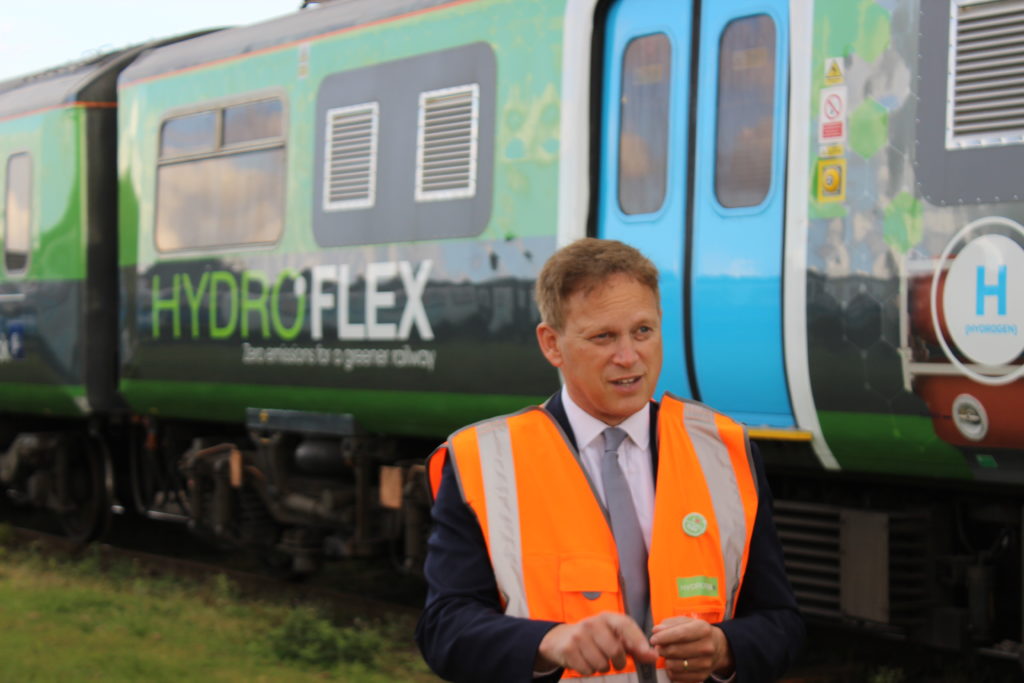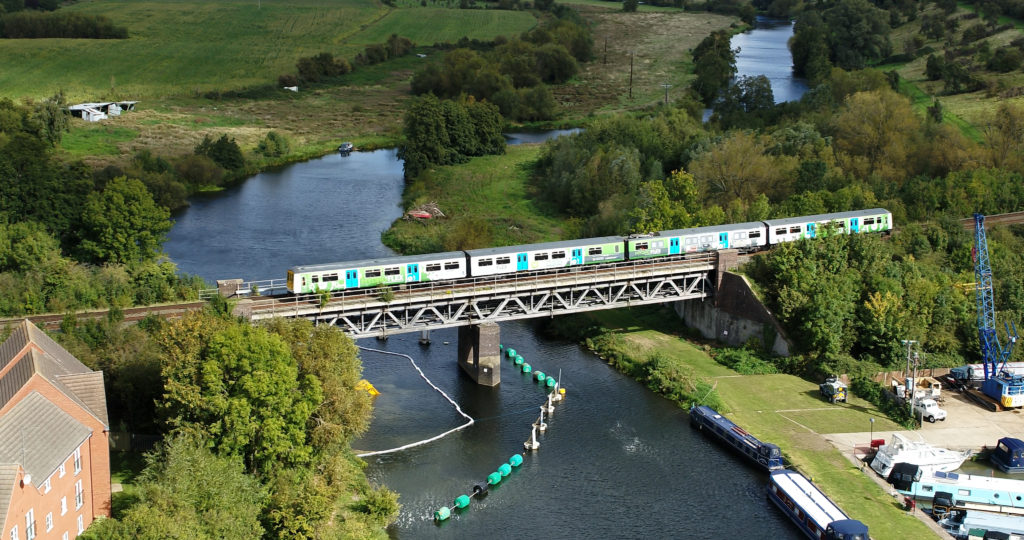HydroFlex, the UK’s first hydrogen-powered train, ran on the main line today, signalling a big step forward towards the UK’s net zero targets.
Developed jointly by the University of Birmingham and train owner Porterbrook, the conversion of a Class 319 all-electric train has been supported with a £750,000 grant from the Department for Transport. Its development took almost two years of work and more than £1million of investment by both the University of Birmingham and Porterbrook.
Hydrogen-powered trains use hydrogen and oxygen to produce electricity, water and heat. The ground-breaking technology behind the trains will also be available by 2023 to retrofit current in-service trains to hydrogen helping decarbonise the rail network and make rail journeys greener and more efficient.
Transport Secretary Grant Shapps visited the development site to meet with leading rail experts from the University of Birmingham’s Birmingham Centre for Railway Research and Education (BCRRE) and to see first-hand HydroFLEX on the mainline.
He also announced his ambition for Tees Valley to become a trailblazing Hydrogen Transport Hub. Bringing together representatives from academia, industry and government to drive forward the UK’s plans to embrace the use of hydrogen as an alternative fuel could create hundreds of jobs while seeing the region become a global leader in the green hydrogen sector.
Tees Valley is perfectly placed to reap these benefits, following the development there of the world’s largest versatile hydrogen refuelling facility made possible through Government funding.

Grant Shapps said: “As we continue on our road to a green recovery, we know that to really harness the power of transport to improve our country – and to set a global gold standard – we must truly embed change.
“That’s why I’m delighted that through our plans to build back better we are embracing the power of hydrogen and the more sustainable, greener forms of transport it will bring.”
To kick start the development in Tees Valley, the Department for Transport has commissioned a masterplan to understand the feasibility of the hub and how it can accelerate the UK’s ambitions in Hydrogen.
The masterplan, expected to be published in January, will pave the way for exploring how green hydrogen could power buses, HGV, rail, maritime and aviation transport across the UK. The aim would then be for the region to become a global leader in industrial research on the subject of hydrogen as a fuel as well as an R&D hub for hydrogen transport more generally, attracting hundreds of jobs and boosting the local economy in the process.
The next stages of HydroFLEX are already well underway, with the University of Birmingham developing a hydrogen and battery powered module that can be fitted underneath the train, which will allow for more space for passengers in the train’s carriage.


